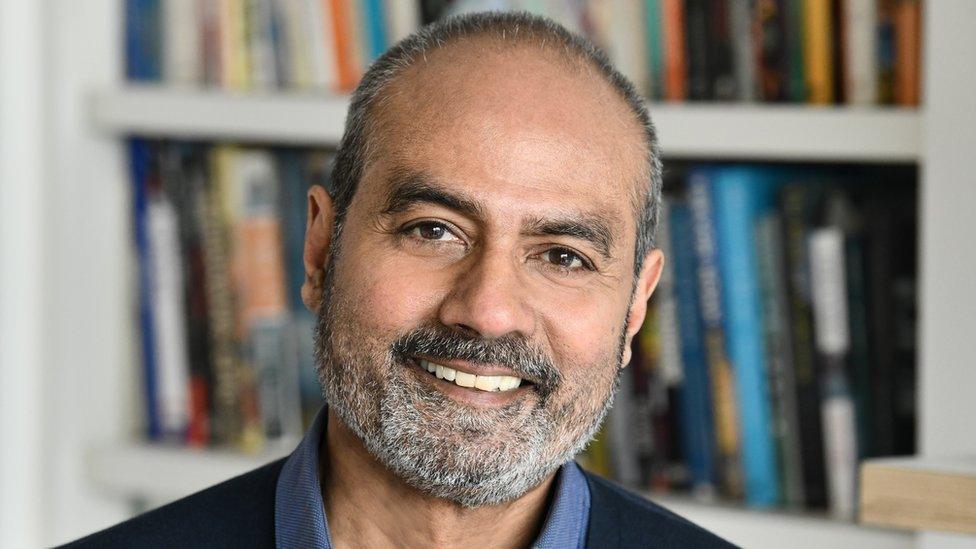George Alagiah: Tributes paid to 'fearless' and 'kind' BBC journalist who has died
- Published
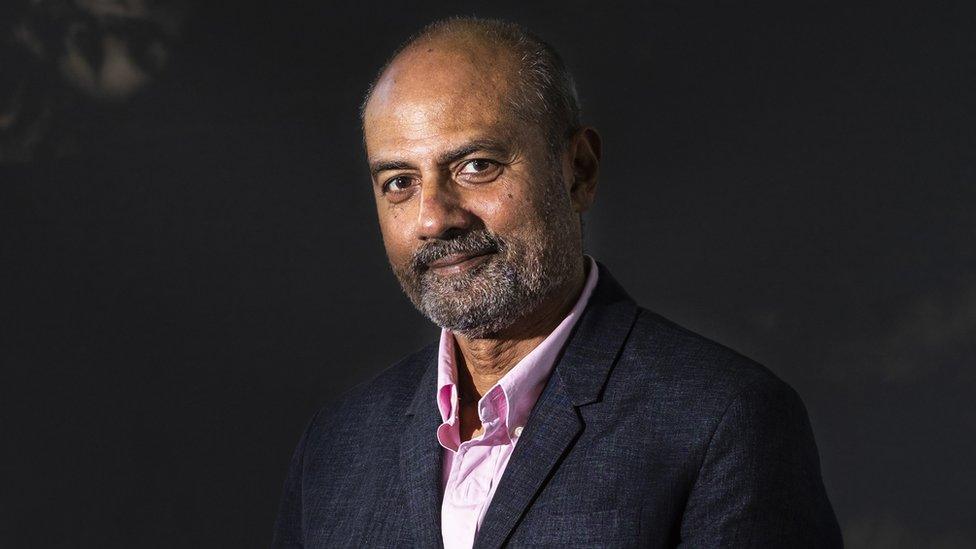
Allan Little on George Alagiah: "He could speak to anybody from heads of state to children in a refugee camp"
Tributes have been paid to BBC journalist and author George Alagiah, who has died of cancer aged 67.
The BBC's chief international correspondent Lyse Doucet called him "a great broadcaster, external", a "kind colleague" and "a thoughtful journalist."
Fellow correspondent John Simpson paid homage, tweeting, external: "A gentler, kinder, more insightful and braver friend and colleague it would be hard to find."
Presenter Clive Myrie said: "I loved him as a mentor, colleague and friend."
In a statement on Monday, BBC director general Tim Davie said that Alagiah "was loved by all". "George was one of the best and bravest journalists of his generation who reported fearlessly from across the world as well as presenting the news flawlessly.
"He was more than just an outstanding journalist, audiences could sense his kindness, empathy and wonderful humanity."
Alagiah won many awards during a hugely successful career, which took him from Southern Africa to many other parts of the world, via the BBC News at Six studio.
Fellow broadcaster Allan Little said the "great strength" of his old friend and mentor was "empathy".
Mr Little, who got to know Alagiah around 30 years ago when they were both stationed in Johannesburg, added: "I learned from him, I used to watch him and kind of marvel at the way he engaged with people.
"He could speak to anybody from heads of state to children in a refugee camp and what was striking is how much people wanted to talk to him, and I watched him win their trust."
"He wanted to be fair, he didn't want to be dramatic," he continued. "And I learned from that - good reporting, decent journalism is rooted in human decency."
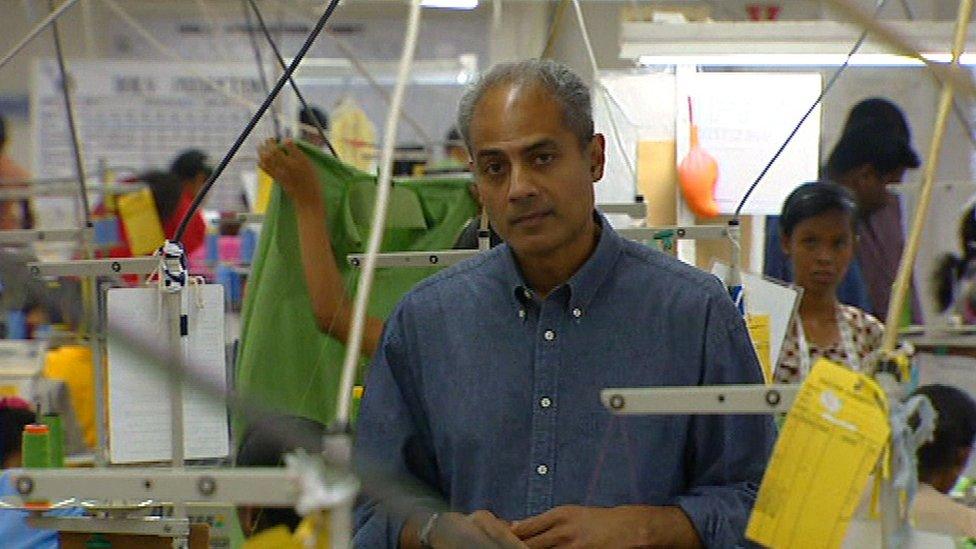
Alagiah reporting after the tsunami in his home nation of Sri Lanka in 2005
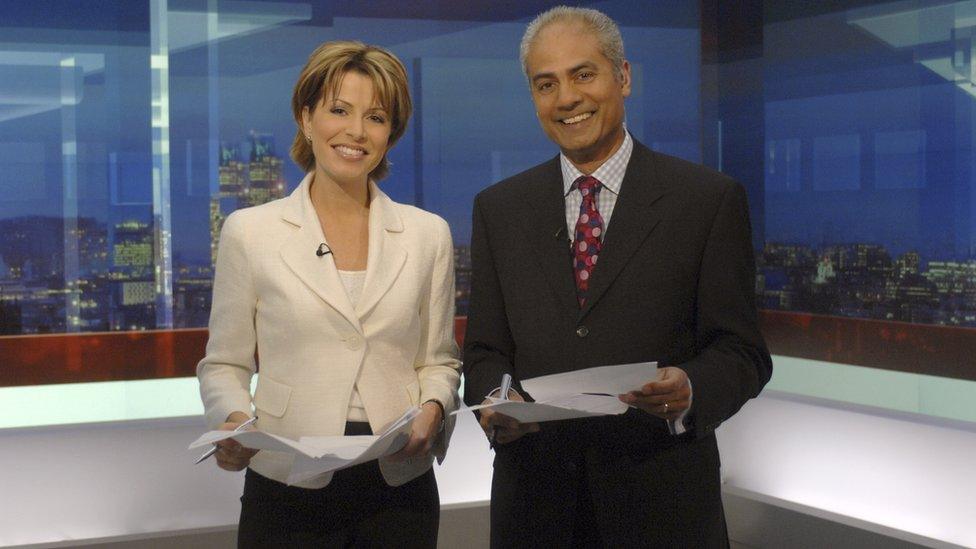
Alagiah alongside former BBC News co-presenter Natasha Kaplinsky
Last year, Alagiah's agent revealed that the broadcaster would be taking a break from TV after discovering his cancer, which was first diagnosed in 2014, had spread.
He had returned to the BBC's News at Six in April 2022, noting how being in the newsroom had "been such an important part of keeping energised and motivated".
Former BBC Africa bureau chief Milton Nkosi said it had been "amazing to watch" him work because he was "always very thoughtful in times of war and rebellion and rioting."
"When we are being shot at with tear gas and rubber bullets, trying to get into the heart of the story, George was the calming voice of reason," he said.
"Because, at that point, we all get a little bit passionate about the story, and we raise our voices and we act like we are panicking, and George would be the one who calms us down."

George Alagiah remembered

News Agents podcaster and former BBC news correspondent Jon Sopel described Alagiah as "the most, principled, external, kindest, most honourable man I have ever worked with. What a loss."
While the corporation's security correspondent Frank Gardner recalled one of his "fondest memories" of Alagiah, external being when his colleague had visited him in hospital back in 2004. "He brought me his book, A Passage to Africa, and we talked for hours about the continent he loved and spent so much of his career covering."
Watch: A look back at George Alagiah's extraordinary career at the BBC
Away from journalism, Alagiah's debut novel, The Burning Land - a thriller about corruption and killing in South Africa - was nominated in 2020 for a Society of Authors award recognising the best new writers over 60.
Fellow writer Sarfraz Mansoor, external called him "the kindest, bravest and most inspiring people I have ever been privileged to know".
"Never complained about his fate and always curious about the world. We are all poorer without him."
Role model
BBC security correspondent Gordon Corera noted how the phrase "never meet your heroes" had not applied to him working with Alagiah.
"He was an inspiration and a role model as a journalist," he tweeted, external. "And when I was lucky enough to work with him, I found him the most kind and generous colleague."
In an interview with BBC Newscast last year, Alagiah was asked if he felt any responsibility to be a role model for other non-white people like him wishing to become journalists.
"Well, it's a slightly embarrassing episode in my professional role actually," he replied. "Because when I started off in - dare I say it 1989, I think I was the BBC's first kind of fully fledged foreign correspondent and person of colour..."
"I just wanted to be a really good journalist, and I didn't want to be the best black or brown journalist," he added, about once nearly declining an award.
"And somebody took me aside and said, 'you idiot, you think it's about you, don't you? These awards are about all the people who look at you and think, you know, if that bloke Alagiah can do that I can certainly do it.'"
Paying tribute, LBC's Sangita Myska stressed the significance the success, external of the Sri Lanka-born Alagiah had on other Asian journalists.
"Growing up, when the BBC's George Alagiah was on TV my dad would shout, 'George is on!'. We'd run to watch the man who inspired a generation of British Asian journalists. That scene was replicated across the UK. We thank you, George. RIP xx."
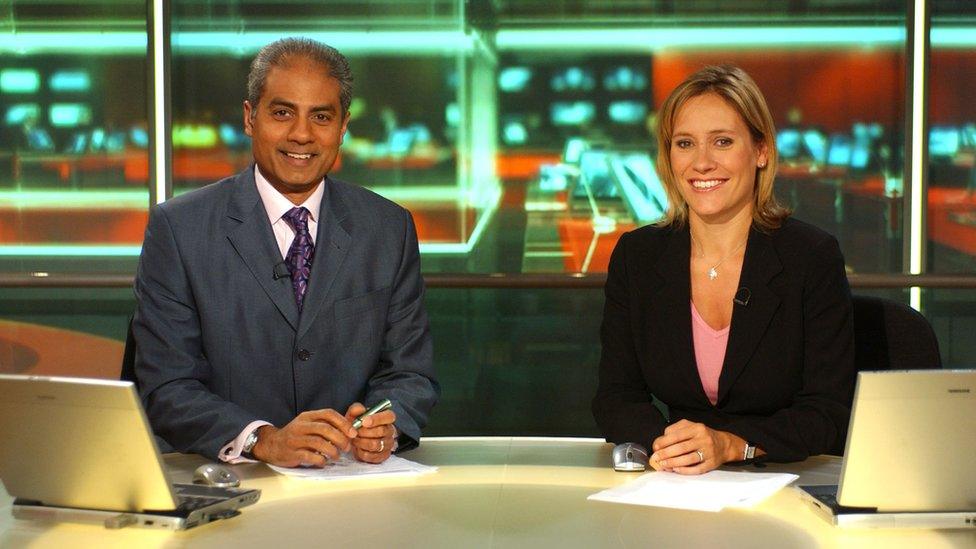
In the studio with fellow BBC News anchor Sophie Raworth
A tearful Naga Munchetty interrupted the sports news on BBC Radio 5 Live on Monday to break the news of the death. "Apologies for the emotion in my voice," she said. "He was so loved in the newsroom."
She added: "He was someone I looked up to greatly because it wasn't his ego, it was never his ego that reassured me, it was the way he obviously cared about what he was reporting.
"You almost felt, as a news presenter, he broke down those barriers."
Chris Bryant MP highlighted how much Alagiah had done to raise awareness of the symptoms of bowel cancer.
"Everyone who has had cancer, or being touched by it, will know the sadness that this moment brings," he said. "And the gratitude, for amazing doctors."
BBC newsreader George Alagiah on living with coronavirus and cancer
Genevieve Edwards, chief executive of Bowel Cancer UK, added that he never "shied away from talking about it", and how "that will have helped countless other people living with bowel cancer and will probably have prompted people to go and see their doctors maybe with symptoms that they've been worrying about."
Sky News presenter Mark Austin wrote:, external "A good man, a rival on the foreign correspondent begat but above all a friend.
"If good journalism is about empathy, and it often is, George Alagiah had it in spades. He understood injustice and the power of good reporting to highlight it, if not correct it..."
Ex-BBC broadcaster and journalist Sheila Fogarty called Alagiah "a gentleman and a brilliant reporter".
Former BBC royal correspondent Jenny Bond, who also worked alongside Alagiah, said he was "one of the most delightful, external, talented and charming men I could ever have wished to know."
Related topics
- Published24 July 2023
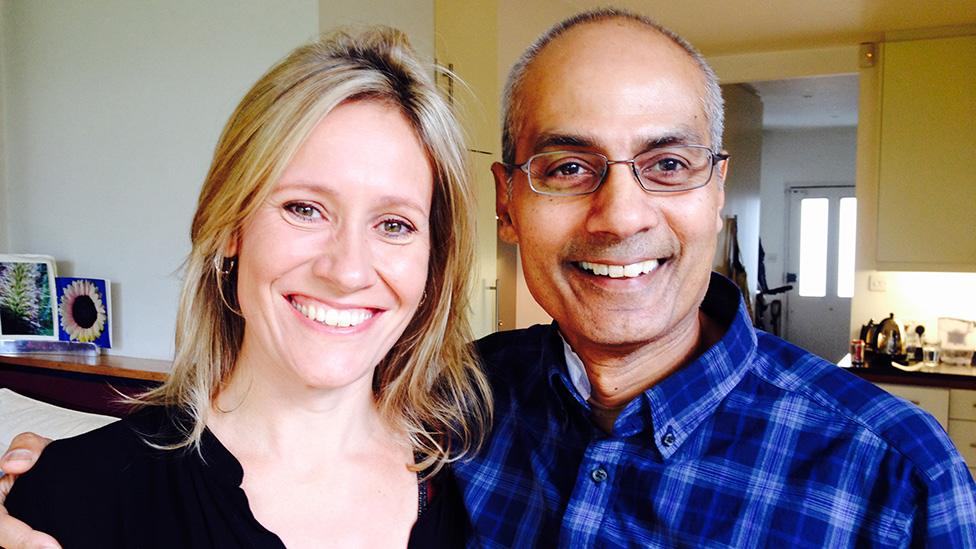
- Published24 July 2023

- Published24 July 2023
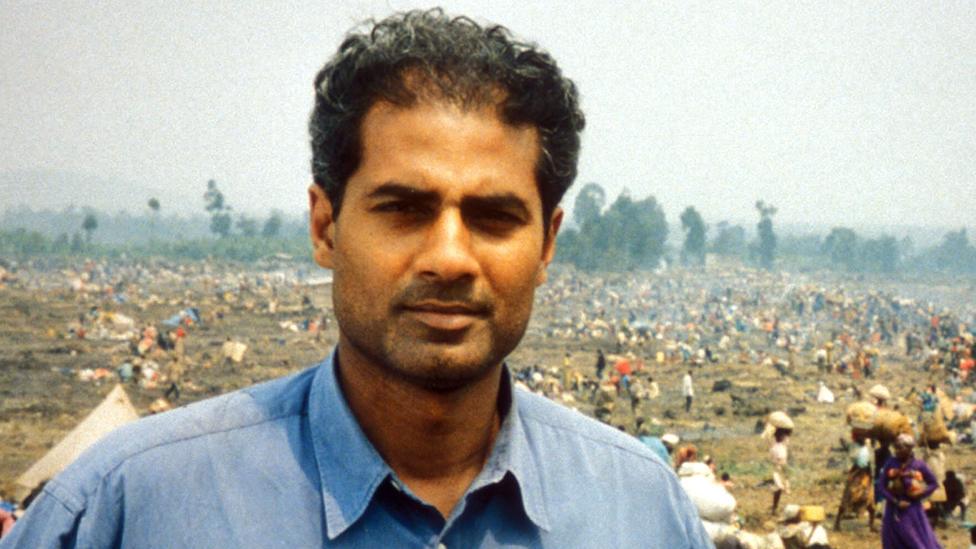
- Published24 July 2023

- Published12 October 2022
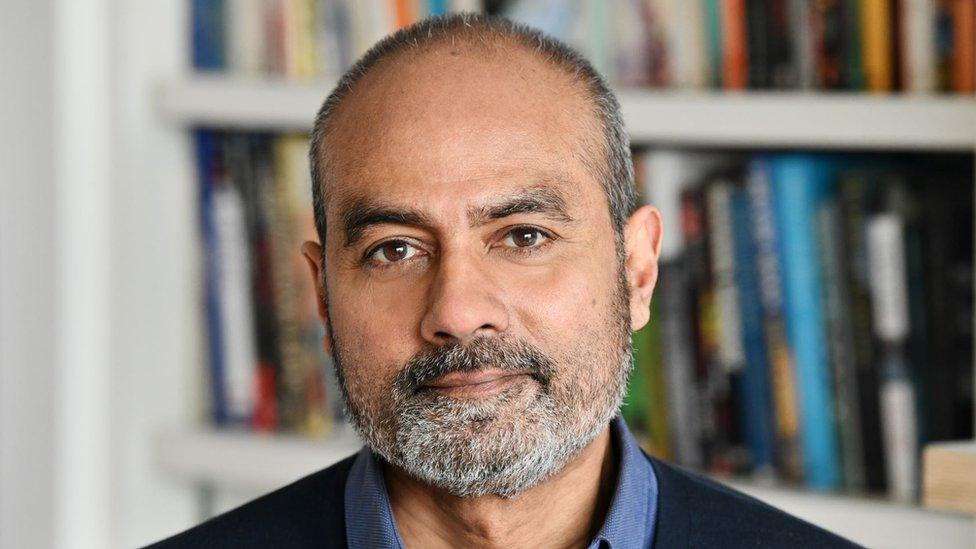
- Published3 January 2022
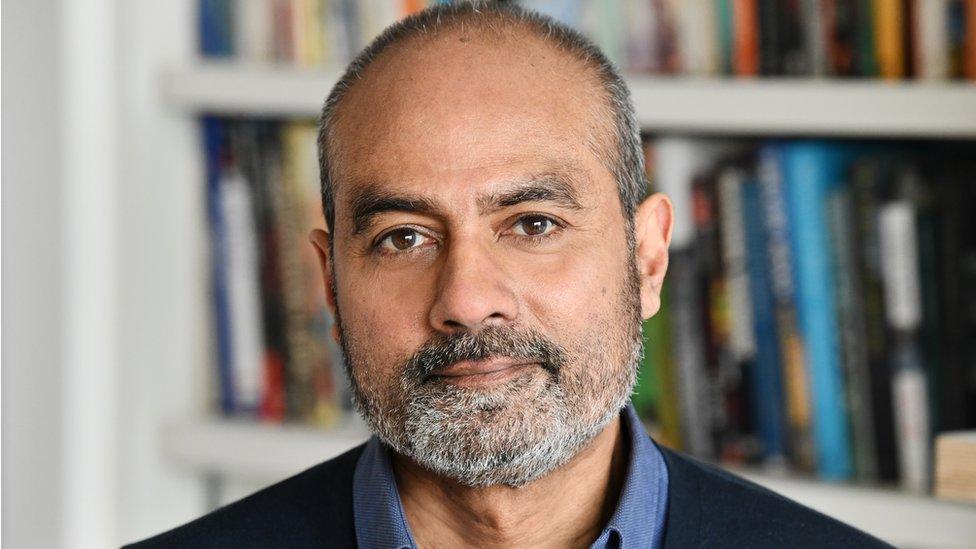
- Published18 October 2021
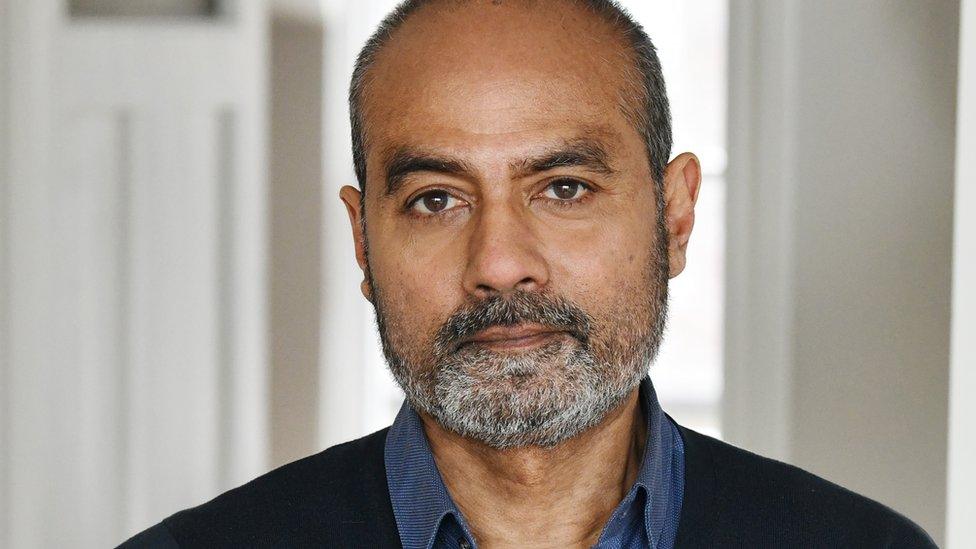
- Published11 June 2020

- Published14 May 2020
